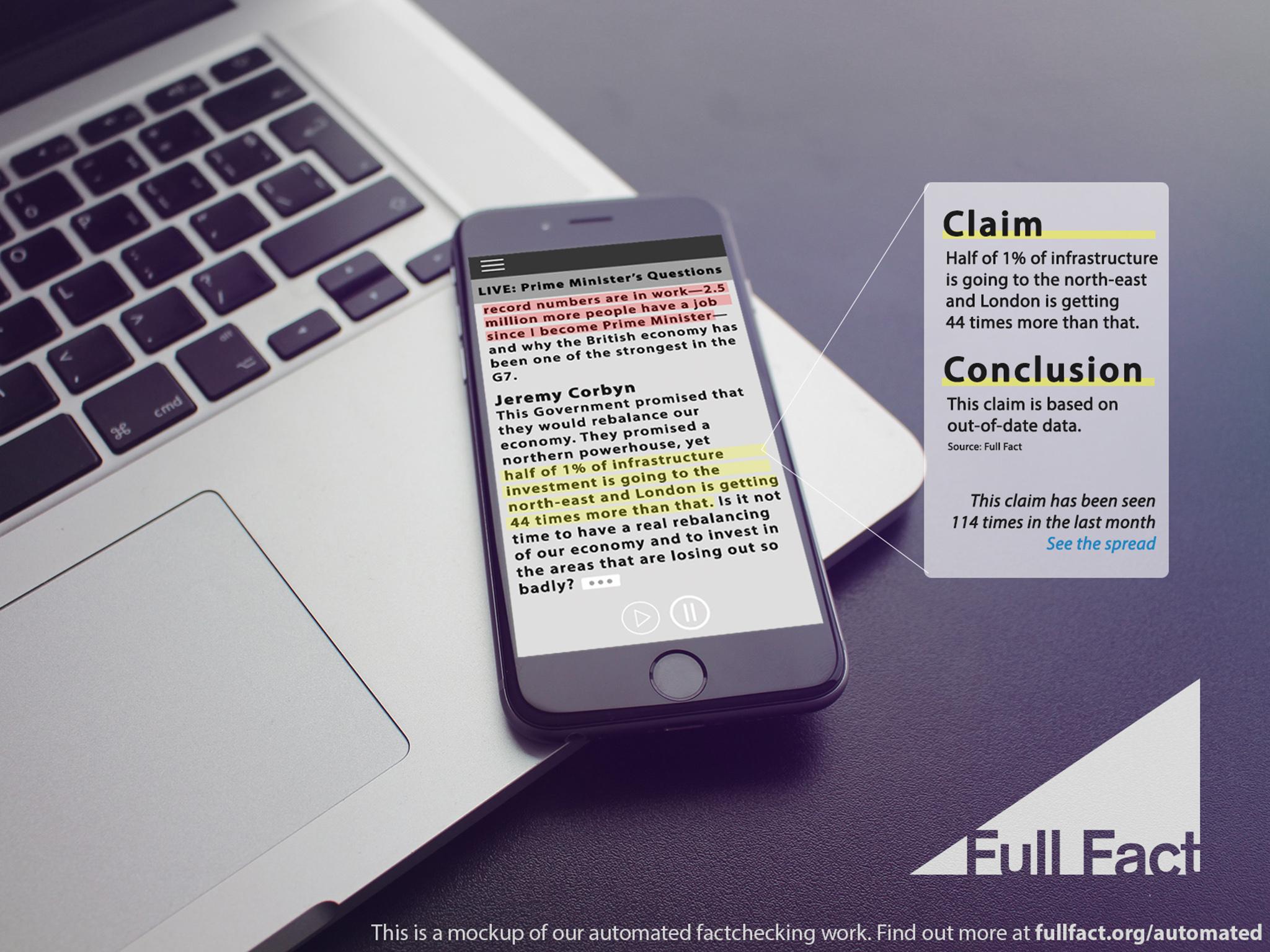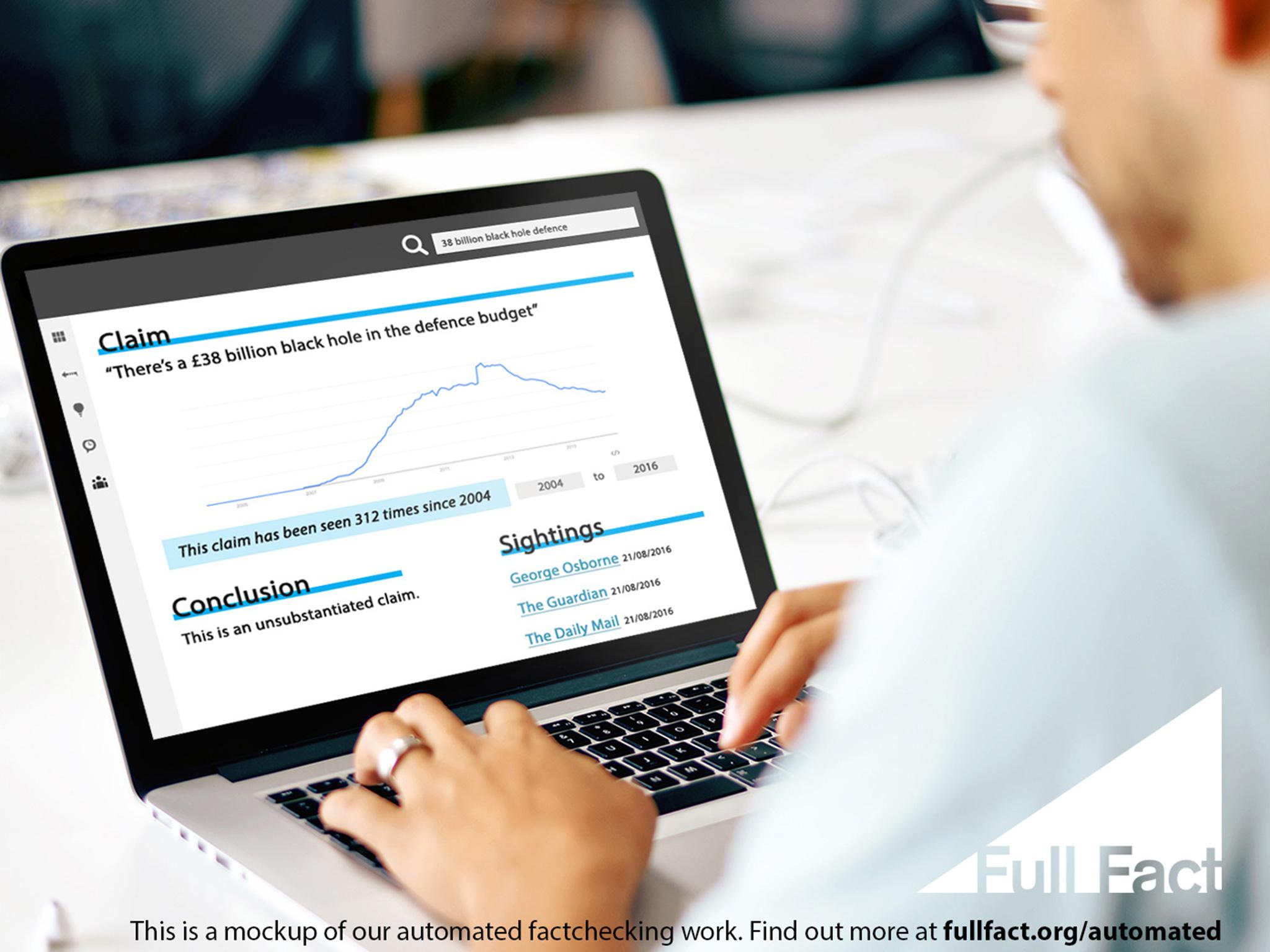Google funds automated fact-checking software in bid to fight fake news
Project aims to develop software which can automatically fact check news 'in real time'

Your support helps us to tell the story
From reproductive rights to climate change to Big Tech, The Independent is on the ground when the story is developing. Whether it's investigating the financials of Elon Musk's pro-Trump PAC or producing our latest documentary, 'The A Word', which shines a light on the American women fighting for reproductive rights, we know how important it is to parse out the facts from the messaging.
At such a critical moment in US history, we need reporters on the ground. Your donation allows us to keep sending journalists to speak to both sides of the story.
The Independent is trusted by Americans across the entire political spectrum. And unlike many other quality news outlets, we choose not to lock Americans out of our reporting and analysis with paywalls. We believe quality journalism should be available to everyone, paid for by those who can afford it.
Your support makes all the difference.Google has agreed to fund a project to develop automated fact checking tools amid anger over the prevalent of fake news websites during the US presidential election.
UK fact checking organisation, FullFact, has announced it has been awarded €50,000 (£43,000) by the tech giant’s Digital News Initiative to build the first “fully automated end-to-end fact checking system”.
In a statement, FullFact explained that the system will have two main features.
One will inform readers if something reported as fact has already been proven inaccurate.
The other mode will fact check claims automatically using Natural Language Processing and statistical analysis in real-time – something FullFact said has never been done before – by highlighting the text and having a factbox appear when the user hovers over it.
The project, which is also supported by two smaller UK tech companies Bytemark and Flax, aims to fight fake “news” sites disseminating false information – particularly about politically charged topics such as perceived crime by refugees, immigration and the alleged crimes of politicians such as Hillary Clinton and Donald Trump.
According to analysis by Buzzfeed News, fake election news got more attention on Facebook than real stories during the US presidential election.
It found that the 20 top-performing stories from hoax websites and partisan blogs generated 8.7m shares, reactions and comments in the three months to polling day – compared to 7.4m for conventional news outlets.

Facebook attempted to diffuse criticism saying it was a tech company not a media company and was not responsible for the information shared on its network.
But following the shock victory of Mr Trump last week, an unofficial task force of Facebook has reportedly been set up to examine the role it played in the spread of false information during the campaign.
After a report found Facebook’s News Feed feature was skewed in favour of left-wing news sources in August, the company fired some of its "trneding news" editors but the algorithm which replaced them automatically began promoting false news shared by users.
FullFact said the initiative was about restoring faith in politicians and public figures following the EU referendum where many were perceived to have openly lied.
It said: “A lot of people on both sides felt lied to during the referendum. What's worse is that many people think it's inevitable they will be lied to. “Only about 1 in 5 of us generally trust politicians or journalists to tell the truth.
“We all need tools that help us choose when to trust and when not to trust claims we hear.
“Otherwise, it’s too easy just to switch off completely and be cynical about everything.”
Google’s Digital News Initiative has so far offered €24m (£20.6m) to fund 124 projects across 25 European countries.
Join our commenting forum
Join thought-provoking conversations, follow other Independent readers and see their replies
Comments